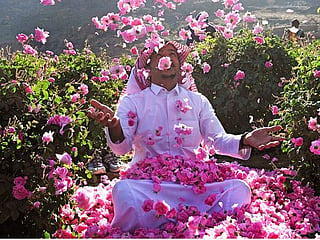COVID-19: Saudi Arabia ups pressure on anti-vaxxers as it eyes economic recovery
Drive accelerated as all pandemic-hit sectors are bedrock of ‘Vision 2030’ programme

Also In This Package
Riyadh: Saudi Arabia is tightening the screws on vaccine sceptics, barring them from pilgrimages and overseas travel and blocking access to universities, malls and offices in an effort to boost inoculations.
So-called anti-vaxxers threaten to jeopardise global efforts to beat the coronavirus pandemic, health experts say.
Riyadh is accelerating a nationwide vaccination drive as it moves to revive tourism and host sports and entertainment extravaganzas, all pandemic-hit sectors that are a bedrock of the “Vision 2030” programme to diversify the oil-reliant economy.
The kingdom has allowed only vaccinated pilgrims or those who have recovered from COVID-19 within the previous six months to perform the year-round umrah pilgrimage.
A similar move is expected for the upcoming annual hajj, a key rite of passage for Muslims, sources close to the government say.
This month, only vaccinated or immunised citizens were allowed to travel abroad, after the kingdom lifted a ban on overseas trips introduced last year at the start of the pandemic.
The kingdom has said that from August 1, vaccinations will be mandatory to enter government and private establishments, including education institutions and entertainment venues, as well as to use public transport.
The sweeping announcement came just days after authorities said only vaccinated public and private sector workers would be allowed to return to the workplace.
Saudi Arabia, the biggest Arab economy, appears bent on pressing ahead in tandem with efforts to reintroduce high-profile events that help soften its ultra-conservative image.
Saudi Arabia could offer a record fee of over $150 million to stage a boxing clash between Tyson Fury and Anthony Joshua this year, ESPN reported in April.
The kingdom is also set to host a Davos-style investment summit in October and its first-ever Formula One Grand Prix in December.
“Vaccinations are crucial for getting the Saudi economic engine running at full speed again,” Robert Mogielnicki, a resident scholar at the Arab Gulf States Institute in Washington, told AFP.
“Higher vaccination rates will support key non-oil industries, such as tourism. Saudi officials want to ensure the show will go on with more concerts, cultural events and entertainment opportunities.”
Saudi Arabia’s health ministry says it has administered more than 12 million coronavirus vaccine doses, in a country with a population of over 34 million.
Sign up for the Daily Briefing
Get the latest news and updates straight to your inbox









